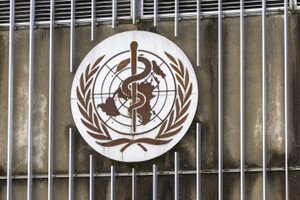Trump orders US exit from the World Health Organization
Published by Global Banking & Finance Review®
Posted on January 21, 2025
4 min readLast updated: January 27, 2026

Published by Global Banking & Finance Review®
Posted on January 21, 2025
4 min readLast updated: January 27, 2026

Trump orders US exit from WHO, citing funding and governance issues. The decision impacts global health programs and sets a 12-month notice period.
By Patrick Wingrove, Jennifer Rigby and Emma Farge
NEW YORK/GENEVA (Reuters) - The United States will leave the World Health Organization, President Donald Trump said on Monday, saying the global health agency had mishandled the COVID-19 pandemic and other international health crises.
Trump said the WHO had failed to act independently from the "inappropriate political influence of WHO member states" and required "unfairly onerous payments" from the U.S. that were disproportionate to the sums provided by other, larger countries, such as China.
"World Health ripped us off, everybody rips off the United States. It's not going to happen anymore," Trump said at the signing of an executive order on the withdrawal, shortly after his inauguration to a second term.
The WHO said on Tuesday that it regretted the move from its top donor country.
"We hope that the United States will reconsider, and we really hope that there will be constructive dialogue for the benefit of everyone, for Americans but also for people around the world," WHO spokesperson Tarik Jasarević told reporters in Geneva.
The move sets a 12-month notice period for the U.S. to leave the United Nations health agency and stop all financial contributions to its work. The United States is by far the WHO's biggest financial backer, contributing around 18% of its overall funding. WHO's most recent two-year budget, for 2024-2025, was $6.8 billion.
The U.S. departure is likely to put at risk programs across the organization, according to several experts both inside and outside the WHO, notably those tackling tuberculosis, the world’s biggest infectious disease killer, as well as HIV/AIDS and other health emergencies.
Trump's order said the administration would cease negotiations on the WHO pandemic treaty while the withdrawal is in progress. U.S. government personnel working with the WHO will be recalled and reassigned, and the government will look for partners to take over necessary WHO activities, according to the order.
The government will review, rescind, and replace the 2024 U.S. Global Health Security Strategy as soon as practicable, the order said.
The next-largest donor to the WHO is the Bill and Melinda Gates Foundation, although most of that funding goes to polio eradication. Its chief executive Mark Suzman said on X that the foundation would continue to make the case to strengthen not weaken the WHO. The next-largest state donor is Germany, which contributes around 3% of the WHO's funding. Germany's health minister said on Tuesday Berlin hoped to talk Trump out of the move.
When asked about Trump's decision and remarks, China's foreign ministry told a regular press briefing on Tuesday that the WHO's role in global health governance should only be strengthened, not weakened.
"China will continue to support the WHO in fulfilling its responsibilities, and deepen international public health cooperation," said Guo Jiakun, a ministry spokesperson.
Trump's withdrawal from the WHO is not unexpected. He took steps to quit the body in 2020, during his first term as president, accusing the WHO of aiding China's efforts to "mislead the world" about the origins of COVID.
WHO vigorously denies the allegation and says it continues to press Beijing to share data to determine whether COVID emerged from human contact with infected animals or due to research into similar viruses in a local laboratory.
Under U.S. law, leaving the WHO requires a one-year notice period, and the payment of any outstanding fees. Before the U.S. withdrawal could be completed last time, Joe Biden won the presidential election and put a stop to it on his first day in office on Jan. 20, 2021.
(Reporting by Patrick Wingrove and Jennifer Rigby; Additional reporting by Eduardo Baptista and Lewis Jackson in Beijing; Editing by Shri Navaratnam, Saad Sayeed, Kate Mayberry and Tomasz Janowski)
The article discusses the US decision to exit the World Health Organization, citing funding and governance issues.
The US cites WHO's mishandling of the COVID-19 pandemic and disproportionate financial contributions as reasons for leaving.
The US exit could impact global health programs and WHO's funding, as the US is its largest financial contributor.
Explore more articles in the Finance category


